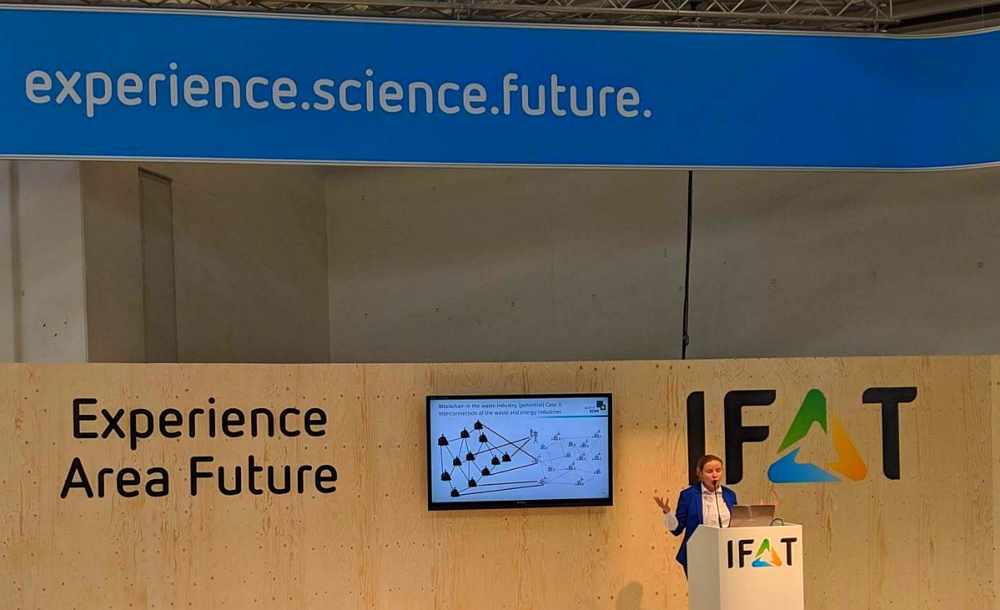From May 14 to May 18, the environmental technology sector met at IFAT in Munich. The world’s leading trade fair for water, sewage, waste and raw materials management, which takes place every two years, focuses on strategies and solutions for the intelligent use, recycling and conservation of resources. Topics such as the handling of waste and secondary raw materials, water management and the establishment of intelligent raw material cycles will be covered. These are of global and cross-sector importance – for example for agriculture, industry and, of course, municipal utilities – and are increasingly driven by the digital transformation.
According to the latest status report on the German circular economy compiled by the German Association for Secondary Raw Materials and Waste Management (Bundesverband Sekundärrohstoffe und Entsorgung, BVSE), the waste management industry in Germany is becoming increasingly digital. Projects relating to smart logistics, blockchain and developments such as smart sensors in particular will shape the future of the industry. For example, the Netherlands and Belgium have launched an initiative called “European waste transportation on blockchain“, which simplifies the verification of cross-border waste transportation through real-time verification. The aim is to reduce inspection costs, increase the efficiency of waste transportation and, last but not least, put a stop to the waste mafia.
aconium employee Daria Malyutina spoke on the topic of blockchain and IoT (Internet of Things) on May 14 in the Future Experience Area at IFAT. Her presentation “Blockchain and IoT in the waste industry: opportunities and obstacles” focused on how these two technology links will change the waste industry. From new payment methods and more flexible billing models, to better distribution of different types of waste and reward systems for the appropriate handling of waste, to resource-saving energy generation from waste, numerous use cases are conceivable and are already being tested.
In her second presentation for aconium GmbH, entitled “State funding for innovative projects in the waste sector in Germany”, Malyutina spoke on May 17 about the funding opportunities for large-scale projects by cities, municipalities and districts and discussed how companies and new technologies can be integrated into state or municipally funded pilot projects in the waste sector. In this sector in particular, cooperation between the public sector and industry is a good way to drive forward the development of new technologies.
National funding programmes such as the Environmental Innovation Programme (UIP) of the Federal Ministry for the Environment, Nature Conservation and Nuclear Safety (BMU) and international EU-funded programmes such as LIFE are helpful here. aconium GmbH supports the public sector in finding suitable technologies and project partners and in applying for public funding for innovative projects.
Photo: Daria Malyutina (Project Manager aconium) during her presentation on blockchain and the Internet of Things (IoT) in the waste industry on 14.05.2018 at IFAT in Munich.
Photo credit: aconium GmbH

